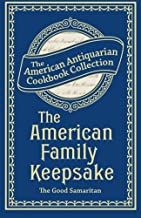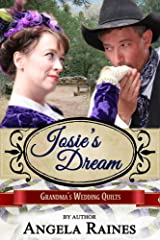Post by Doris McCraw
writing as Angela Raines
 |
| Photo Property of the Author |
Trust your Intuition Day. When we think about intuition it's usually about ourselves. However, this made me think back to how much early pioneers did or did not trust their intuition.
When planning their travel via the Oregon, Santa Fe, or any other of the East to West Trails, were they able to talk to anyone who'd made the trip? Perhaps, by 1859 they could have read "The Prairie Traveler" by Randolph B. Marcy, Captain, U. S. Army. This was written in response to "The Emigrants' Guide" and used by those heading to the goldfields in Colorado. They could have made use of the articles and pamphlets written by those who'd traveled their expected route. Another example is the 1848 book "Emigrants' Guide to Oregon and California" by Lansford Hastings, used by the Donner Party. Here is a link to that publication: The Guidebook used by the Donner Party
While these options were useful, as we know, the weather, time of departure, and any number of factors would have made a trip much different from the one before. On the trail, intuition and common sense might have been the best weapon in the traveler's arsenal.
How much did intuition play in the search for gold? Early prospectors were probably not versed in geology and the earth sciences. That's not to say they didn't have on-the-job learning/training.
Early physicians. A lot of their diagnosis probably had to do with practical applications and a lot of intuition. Antibiotics, understanding of germ theory, etc. were not known in the early days of medical practice. An 1848 book "The American Family Keepsake" says that drinking Olive Oil is a cure for snakebite.
A dive into some of the small details or reading books published during a certain time period give a lot of insight into how people thought and/or acted. I've found all of this to be very useful when I'm researching my books.
In "Josie's Dream" a study of the Keokuk School of Physicians and Surgeons gave me an understanding of what Josephine would have been exposed to as she studied to become a physician herself. And yet, when she started her practice her intuition served her well.
Until next time...
Doris McCraw




.png)
I could not imagine traveling across the country back then and trying to predict what hazards one might face. And to be a doctor; I did a lot of research for my story, No Luck At All. Creel was a doctor and so much of what we know he didn't. Thankfully, my research wasn't just books. I have a friend who is a retired air force nurse and she was a wealth of info, especially the germ info you mentioned.
ReplyDeleteThanks for sharing, Doris!
I agree. Those early travelers were hardy folk. Like you, I had friends in the medical field when I wrote Josie's Dream. It really helped me to understand what it might have been like for a doctor in those days.
ReplyDeleteI'm glad you enjoyed the post. Doris
Interesting post. I struggle to find info on historical topics, especially medical knowledge and treatments back then. There's a blog that has medical info for authors. https://redwoodsmedicaledge.com/ I've found that to be helpful at times.
ReplyDeleteMelissa,
ReplyDeleteIt is hard to find medical information. I've come across the papers doctors have written for their medical societies that add interesting tidbits. Thank you for the link. Doris